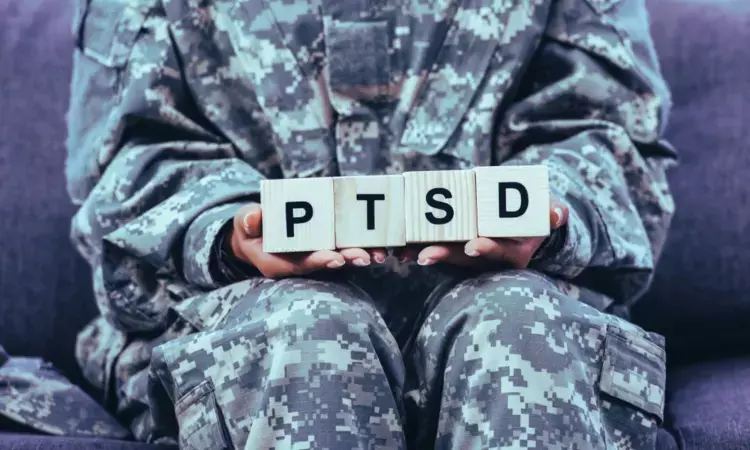- Home
- Medical news & Guidelines
- Anesthesiology
- Cardiology and CTVS
- Critical Care
- Dentistry
- Dermatology
- Diabetes and Endocrinology
- ENT
- Gastroenterology
- Medicine
- Nephrology
- Neurology
- Obstretics-Gynaecology
- Oncology
- Ophthalmology
- Orthopaedics
- Pediatrics-Neonatology
- Psychiatry
- Pulmonology
- Radiology
- Surgery
- Urology
- Laboratory Medicine
- Diet
- Nursing
- Paramedical
- Physiotherapy
- Health news
- Fact Check
- Bone Health Fact Check
- Brain Health Fact Check
- Cancer Related Fact Check
- Child Care Fact Check
- Dental and oral health fact check
- Diabetes and metabolic health fact check
- Diet and Nutrition Fact Check
- Eye and ENT Care Fact Check
- Fitness fact check
- Gut health fact check
- Heart health fact check
- Kidney health fact check
- Medical education fact check
- Men's health fact check
- Respiratory fact check
- Skin and hair care fact check
- Vaccine and Immunization fact check
- Women's health fact check
- AYUSH
- State News
- Andaman and Nicobar Islands
- Andhra Pradesh
- Arunachal Pradesh
- Assam
- Bihar
- Chandigarh
- Chattisgarh
- Dadra and Nagar Haveli
- Daman and Diu
- Delhi
- Goa
- Gujarat
- Haryana
- Himachal Pradesh
- Jammu & Kashmir
- Jharkhand
- Karnataka
- Kerala
- Ladakh
- Lakshadweep
- Madhya Pradesh
- Maharashtra
- Manipur
- Meghalaya
- Mizoram
- Nagaland
- Odisha
- Puducherry
- Punjab
- Rajasthan
- Sikkim
- Tamil Nadu
- Telangana
- Tripura
- Uttar Pradesh
- Uttrakhand
- West Bengal
- Medical Education
- Industry
Yoga versus cognitive processing therapy: Which is better for military sexual trauma related PTSD?

USA: A recent study published in JAMA Network Open has revealed Trauma Center Trauma-Sensitive Yoga (TCTSY) to be equivalent to cognitive processing therapy (CPT) in reducing posttraumatic stress disorder (PTSD) symptom severity, with significant improvement in both groups.
"The higher treatment completion rate for TCTSY implies its higher acceptability as an acceptable and effective PTSD treatment for women veterans with PTSD related to military sexual trauma (MST) that could address current VA PTSD treatment limitations," the researchers wrote.
In the randomized clinical trial of 131 women veterans with PTSD who use the US Department of Veterans Affairs health care, TCTSY had large within-group effect sizes, a 42.6% higher treatment completion rate than CPT, and equivalent effectiveness to CPT.
First-line treatment for PTSD in the US Department of Veterans Affairs (VA) is a trauma-focused therapy that is effective but is limited by high dropout, low treatment initiation, and high treatment refraction. Belle Zaccari, Veterans Affairs Portland Health Care System, Portland, Oregon, and colleagues aimed to evaluate the effectiveness of Trauma Center Trauma-Sensitive Yoga versus first-line cognitive processing therapy in women veterans with PTSD related to MST and the hypothesis that PTSD outcomes would differ between the interventions.
For this purpose, the researchers conducted a multisite randomized clinical trial from 2015 to 2022 within 2 VA healthcare systems located in the southeast and northwest. It included women veterans aged 22 to 71 years with MST-related PTSD. They were randomized to the TCTSY intervention (Hatha-style yoga focusing on interoception and empowerment) consisting of 10 weekly, 60-minute group sessions, and the CPT intervention (cognitive-based therapy targeting modification of negative posttraumatic thoughts) consisting of 12 weekly, 90-minute group sessions.
The primary outcome was PTSD symptom severity; it was assessed using the Clinician-Administered PTSD Scale for DSM-5 (CAPS-5) and PTSD Checklist for DSM-5 (PCL-5). Assessments were conducted at baseline,
The primary outcome, PTSD symptom severity, was assessed using the Clinician-Administered PTSD Scale for DSM-5 (CAPS-5) and PTSD Checklist for DSM-5 (PCL-5). Assessments were conducted at baseline, midintervention, 2 weeks post intervention, and 3 months post intervention.
The study led to the following findings:
- Of 200 women veterans who consented to participate, the intent-to-treat sample comprised 131 participants (mean age, 48.2 years), with 72 randomized to TCTSY and 59 randomized to CPT.
- Treatment was completed by 65.3% of participants in the TCTSY group and 45.8% in the CPT group, a 42.6% higher treatment completion rate in the TCTSY group.
- Both treatment groups improved over time on the CAPS-5 (mean scores at baseline: 36.73 for TCTSY and 35.52 for CPT; mean scores at 3 months: 24.03 for TCTSY and 22.15) and the PCL-5 (mean scores at baseline: 49.62 for TCTSY and 48.69 for CPT; mean scores at 3 months: 36.97 for TCTSY and 31.76).
- None of the group effects or group-by-time effects were significant.
- There was no significant difference in equivalence analyses of change scores between the TCTSY and CPT groups, and the two one-sided test intervals fell within the equivalence bounds of plus or minus 10 for CAPS-5 for all follow-up time points.
"The findings show TCTSY to be a cost-effective means to expand VA PTSD treatment options; patient-driven, increase access to acceptable, and effective PTSD treatment for women veterans; and provide a treatment option that could improve associated symptoms (eg, anxiety, depression)," the researchers concluded.
Reference:
Zaccari B, Higgins M, Haywood TN, et al. Yoga vs Cognitive Processing Therapy for Military Sexual Trauma–Related Posttraumatic Stress Disorder: A Randomized Clinical Trial. JAMA Netw Open. 2023;6(12):e2344862. doi:10.1001/jamanetworkopen.2023.44862
Dr Kamal Kant Kohli-MBBS, DTCD- a chest specialist with more than 30 years of practice and a flair for writing clinical articles, Dr Kamal Kant Kohli joined Medical Dialogues as a Chief Editor of Medical News. Besides writing articles, as an editor, he proofreads and verifies all the medical content published on Medical Dialogues including those coming from journals, studies,medical conferences,guidelines etc. Email: drkohli@medicaldialogues.in. Contact no. 011-43720751


